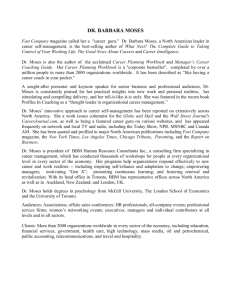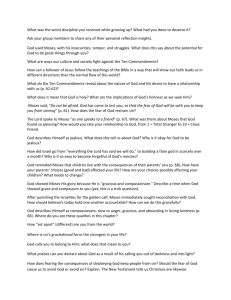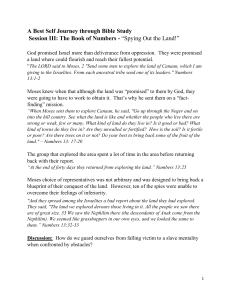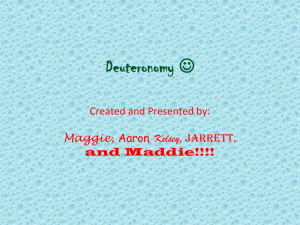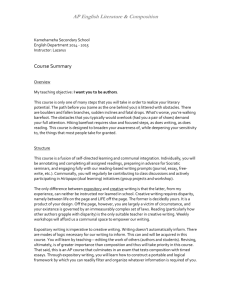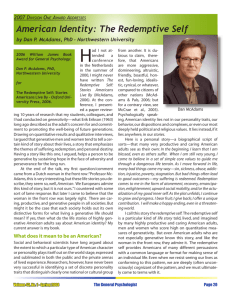Shemot Dvar Torah December 2013
advertisement
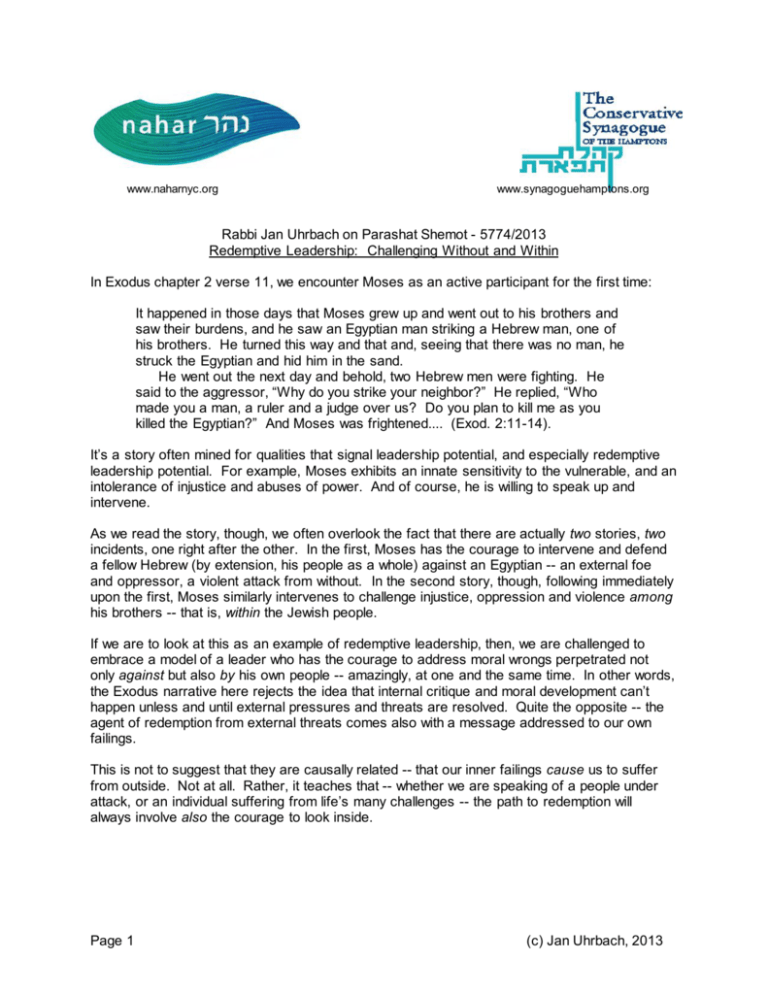
www.naharnyc.org www.synagoguehamptons.org Rabbi Jan Uhrbach on Parashat Shemot - 5774/2013 Redemptive Leadership: Challenging Without and Within In Exodus chapter 2 verse 11, we encounter Moses as an active participant for the first time: It happened in those days that Moses grew up and went out to his brothers and saw their burdens, and he saw an Egyptian man striking a Hebrew man, one of his brothers. He turned this way and that and, seeing that there was no man, he struck the Egyptian and hid him in the sand. He went out the next day and behold, two Hebrew men were fighting. He said to the aggressor, “Why do you strike your neighbor?” He replied, “Who made you a man, a ruler and a judge over us? Do you plan to kill me as you killed the Egyptian?” And Moses was frightened.... (Exod. 2:11-14). It’s a story often mined for qualities that signal leadership potential, and especially redemptive leadership potential. For example, Moses exhibits an innate sensitivity to the vulnerable, and an intolerance of injustice and abuses of power. And of course, he is willing to speak up and intervene. As we read the story, though, we often overlook the fact that there are actually two stories, two incidents, one right after the other. In the first, Moses has the courage to intervene and defend a fellow Hebrew (by extension, his people as a whole) against an Egyptian -- an external foe and oppressor, a violent attack from without. In the second story, though, following immediately upon the first, Moses similarly intervenes to challenge injustice, oppression and violence among his brothers -- that is, within the Jewish people. If we are to look at this as an example of redemptive leadership, then, we are challenged to embrace a model of a leader who has the courage to address moral wrongs perpetrated not only against but also by his own people -- amazingly, at one and the same time. In other words, the Exodus narrative here rejects the idea that internal critique and moral development can’t happen unless and until external pressures and threats are resolved. Quite the opposite -- the agent of redemption from external threats comes also with a message addressed to our own failings. This is not to suggest that they are causally related -- that our inner failings cause us to suffer from outside. Not at all. Rather, it teaches that -- whether we are speaking of a people under attack, or an individual suffering from life’s many challenges -- the path to redemption will always involve also the courage to look inside. Page 1 (c) Jan Uhrbach, 2013 One reason why that might be is because, if we think about it, it’s a profoundly empowering and ennobling attitude. As a leader, Moses will not demean his own people by excusing their moral failings, treating them effectively as slaves, so cowed by an external enemy that they do not have the spiritual, emotional, or moral wherewithal to improve, and cannot be held responsible. By juxtaposing the two narratives, the Torah conveys a far more inspiring message: regardless of the external circumstances confronting you, you remain always morally and ethically free, capable of spiritual and ethical growth, and worthy -- therefore -- of loving rebuke. Sadly, in the Biblical narrative, the redemptive message is rejected, and the redemptive messenger is branded an outsider, disloyal and even a threat: “Who made you a ruler and a judge over us? Do you plan to kill me . . .?” Or translated more literally, “do you speak to kill me?” As a result Moses flees -- afraid, and perhaps despairing over whether change is really possible. Too often -- both collectively and individually -- we do the same, pushing away those teachers, leaders and healers who might help us overcome or better manage external challenges we face, because we are unwilling to hear the concommitant message that we ourselves may also need to change. It is indeed easy to brand such voices unsupportive or disloyal. It’s much harder to hear the respect, dignity and love inherent in such a message, and to remember that in pushing it away, we may well be rejecting our own redemption. Shabbat shalom, Rabbi Jan Uhrbach rabbiuhrbach@gmail.com Page 2 (c) Jan Uhrbach, 2013


